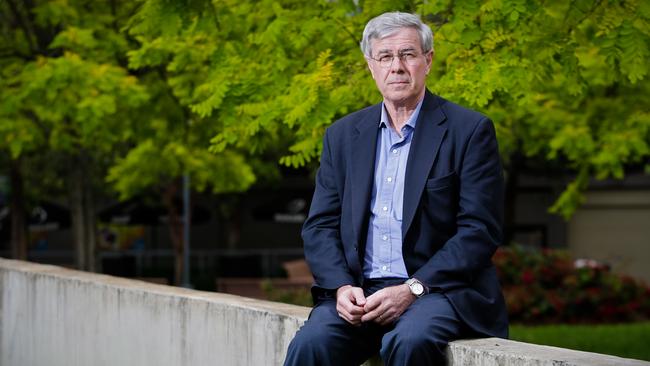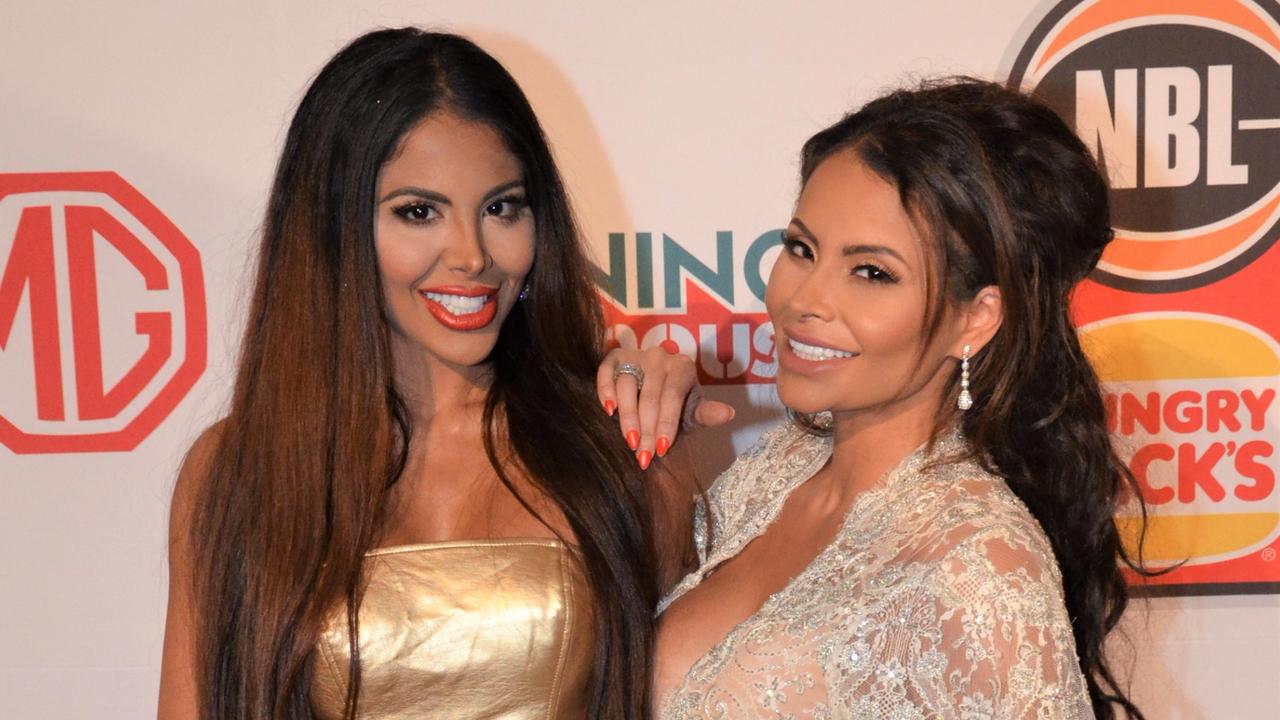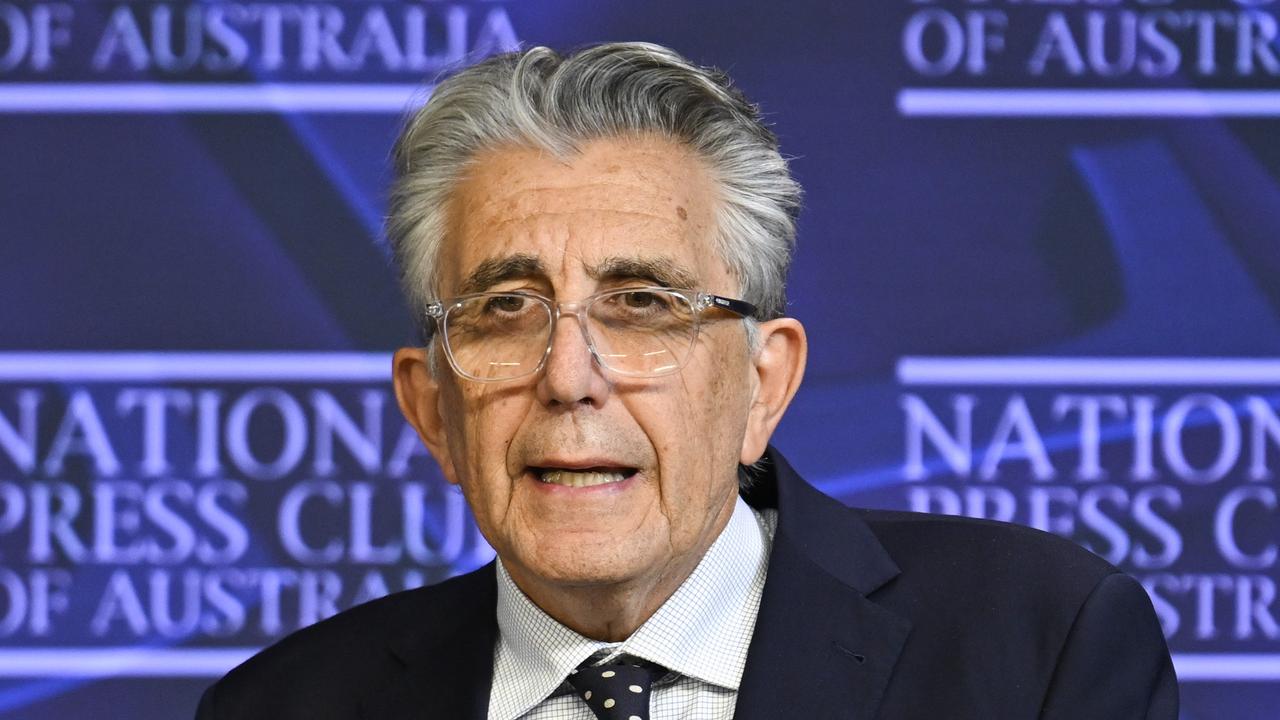Finkelstein by stealth: concerns raised over Disney’s Press Council
THE Australian has been asked to respond to a complaint about a photo of a seven-year-old boy holding a severed head.

THE Australian has been asked to respond to a Press Council complaint lodged over the publication this week of a photograph of a seven-year-old boy, the son of Islamic State terrorist Khaled Sharrouf, holding the severed head of an Iraqi.
The Press Council suggested publication of the photograph might have been a breach of APC principles relating to “discretion and causing offence”.
The newspaper has been asked to consider whether the prominent treatment given to the photograph “could have reasonably been expected to cause offence and in doing so whether the publication sufficiently balanced the sensibilities of readers with the public interest”.
The complaint was not made by the Sharrouf family but by a “third party” with no direct involvement.
The same photograph was described this week as probably “iconic” by US Secretary of State John Kerry.
Campbell Reid, group editorial director for News Corp Australia, has praised The Australian’s publicationof the photograph.
“Occasionally the most confronting and disturbing scenes have the power to raise the alarm, change attitudes and demand action,” Mr Reid said in an email to staff.
“At a time when editors are often under pressure to shield their readers from offensive and confronting news it is courageous editing at its best to publish a scene that meets the sternest public interest test.
“That is the test of deciding not just what the public wants to know but what it needs to know. The Australian public needs to know what Australian-born terrorist Khaled Sharrouf and others like him are capable of. Yes, the image is grotesque and stomach churning but as US Secretary of State John Kerry observed it is probably also iconic.”
The Press Council’s decision to open a complaint file about the photograph comes as the organisation makes its complaint process more widely available to third parties without any direct involvement.
This is one of a number of changes at the Press Council through which the organisation is seeking to extend its reach into areas of the media that had previously been beyond its jurisdiction.
This has heightened tensions with publishers who are concerned about a new focus on privacy and subjective questions such as taste, political opinions and where articles are placed within a newspaper.
These changes, supported by new general principles that were introduced on August 1, have led publishers and editors to believe the council’s chairman Julian Disney is seeking to introduce the Gillard’s government’s Finkelstein recommendations by stealth.
While the Abbott government has ruled out the introduction of a privacy tort, the council’s new rules on reporting funerals have been described by media lawyer Mark O’Brien as an attempt to create “a defacto privacy rule” that had no basis in Australian legal principle.
They were introduced by the council in a ruling against The Sydney Morning Herald this week.
Mr O’Brien said he was unaware of any previous attempt to apply the Press Council’s privacy standard to restrict the coverage of funerals.
Former Press Council chairman David Flint said he would never have applied the privacy standard in the way it was now being used.
Another former chairman, Ken McKinnon, accepted that the organisation was involving itself in areas that would never have been acceptable during his tenure.
Professor McKinnon, who remains a Press Council supporter, said he would never have allowed the organisation to become involved in debates about the prominence given to particular news reports because this was outside its jurisdiction.
On February 27, the Press Council issued an adverse finding against Sydney’s The Daily Telegraph because it believed a report that appeared on page 17 should have been given greater prominence.
Professor McKinnon said that, when he was chairman, he took the view that it was up to editors to decide where news stories appeared in their publications and he would not have tolerated opening the issue for debate
“We felt we did not want to interfere at all in the job of the editors,” he said.
He was also wary of allowing the Press Council’s complaint mechanism to be used by political and social activists to penalise newspapers over reports with which they disagreed.
“Whenever an event happened like the Gaza struggle, you could guarantee that a coterie of Jewish people would criticise the way newspapers reported it, and an equal number of Palestinian supporters would criticise it the other way,” he said.
“We were very sympathetic to the press on that.”
In December 2012, the council issued an adverse ruling against an opinion article published in this newspaper because the Press Council found it gravely offensive.
British journalist James Delingpole had quoted an unnamed sheep farmer who said the wind-farm business was “bloody well near a paedophile ring”.
“They are f..king our families and knowingly so,” he wrote.



